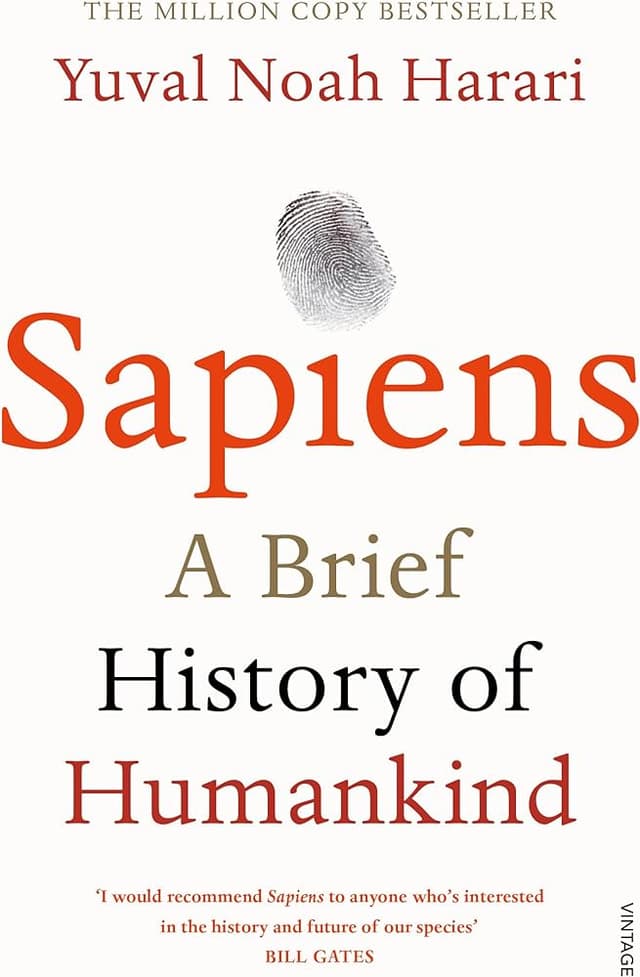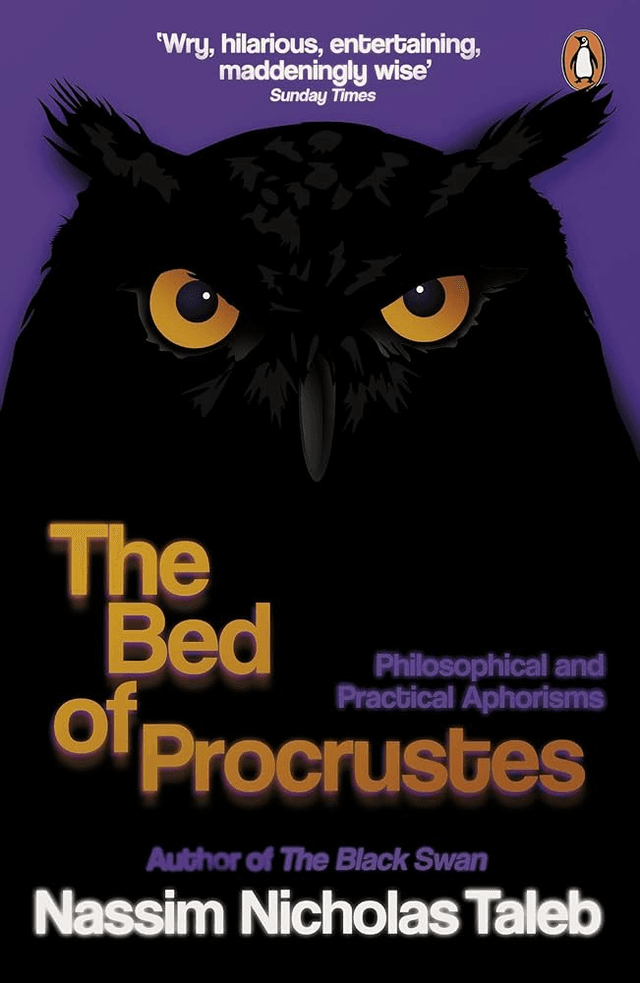Sapiens: A Brief History of Humankind by Yuval Noah Harari vs. The Bed of Procrustes: Philosophical and Practical Aphorisms
Sapiens: A Brief History of Humankind by Yuval Noah Harari
The great thing about this book is that it takes a big-picture view of human history. It attempts to explain the main themes of human history without getting bogged down in the details. Sapiens also debunks many popular myths about human history, including the one that people today live happier lives and have better diets than our hunter-gatherer predecessors. It comes with an epilogue about the future of humankind in light of ever-accelerating technological progress. With the recent advances in AI it is more relevant than ever. If you're going to read one book on history this year, read this one.
The Bed of Procrustes: Philosophical and Practical Aphorisms
"The Bed of Procrustes" is a collection of aphorisms by Nassim Nicholas Taleb that distills his philosophical insights into short, thought-provoking statements. The title refers to the Greek myth of Procrustes, symbolizing the tendency to force things into unnatural conformity. Through these aphorisms, Taleb critiques modern society's flaws, biases, and misconceptions, offering a sharp, often humorous, commentary on topics ranging from knowledge and science to wealth and human behavior. This book is perfect for readers who enjoy deep, philosophical musings and appreciate Taleb's sharp wit and unconventional perspectives.


Reviews
Reviews
| Item | Votes | Upvote |
|---|---|---|
| No pros yet, would you like to add one? | ||
| Item | Votes | Upvote |
|---|---|---|
| No cons yet, would you like to add one? | ||
| Item | Votes | Upvote |
|---|---|---|
| Concise and impactful | 1 | |
| Witty and thought-provoking | 1 | |
| Covers a wide range of topics | 1 |
| Item | Votes | Upvote |
|---|---|---|
| May feel fragmented | 1 |
Frequently Asked Questions
'Sapiens' provides a comprehensive overview of human history, focusing on major themes and debunking myths, making it ideal for readers seeking a broad understanding of humanity's past. In contrast, 'The Bed of Procrustes' offers philosophical aphorisms that critique modern society and human behavior, which may not directly address historical context. Therefore, if your goal is to understand human history specifically, 'Sapiens' is the better choice.
'Sapiens' is written in a narrative style that is accessible and engaging for a wide audience, making it a compelling read for those interested in history. On the other hand, 'The Bed of Procrustes' consists of aphorisms that are concise and thought-provoking, appealing to readers who enjoy philosophical insights and wit. The choice depends on whether you prefer a narrative historical account or a collection of philosophical reflections.
'The Bed of Procrustes' is specifically designed to offer philosophical insights through its aphorisms, making it rich in thought-provoking content. In contrast, 'Sapiens' focuses more on historical analysis and themes rather than philosophical musings. If you are looking for deep philosophical commentary, 'The Bed of Procrustes' would be the better option.
'Sapiens: A Brief History of Humankind' by Yuval Noah Harari takes a big-picture view of human history. It explains the main themes of human evolution and development without getting bogged down in details. The book also debunks many popular myths about human history, such as the idea that people today live happier lives or have better diets than our hunter-gatherer predecessors. It ends with an epilogue discussing the future of humankind in light of accelerating technological progress, making it particularly relevant given recent advances in AI.
'Sapiens: A Brief History of Humankind' discusses several main themes, including the cognitive revolution, the agricultural revolution, the unification of humankind, and the scientific revolution. The book explores how these events have shaped human societies, cultures, and economies. It also delves into the impact of technological advancements on the future of humanity.
Yuval Noah Harari is an Israeli historian and professor in the Department of History at the Hebrew University of Jerusalem. He is known for his bestselling books 'Sapiens: A Brief History of Humankind', 'Homo Deus: A Brief History of Tomorrow', and '21 Lessons for the 21st Century'. Harari's work focuses on broad historical processes and their implications for the future.
Pros of 'Sapiens: A Brief History of Humankind' include its broad, comprehensive view of human history and its ability to debunk popular myths. The book is also praised for its engaging writing style and thought-provoking insights. Cons might include its broad scope, which can sometimes lead to oversimplification of complex historical events, and the fact that some readers may find its speculative future predictions less convincing.
'The Bed of Procrustes' is a collection of aphorisms by Nassim Nicholas Taleb that distills his philosophical insights into short, thought-provoking statements. The title refers to the Greek myth of Procrustes, symbolizing the tendency to force things into unnatural conformity. Through these aphorisms, Taleb critiques modern society's flaws, biases, and misconceptions, offering a sharp, often humorous, commentary on topics ranging from knowledge and science to wealth and human behavior. This book is perfect for readers who enjoy deep, philosophical musings and appreciate Taleb's sharp wit and unconventional perspectives.
Pros of 'The Bed of Procrustes' include its concise and impactful nature, its witty and thought-provoking content, and the wide range of topics it covers. However, a con noted by some readers is that it may feel fragmented.



















